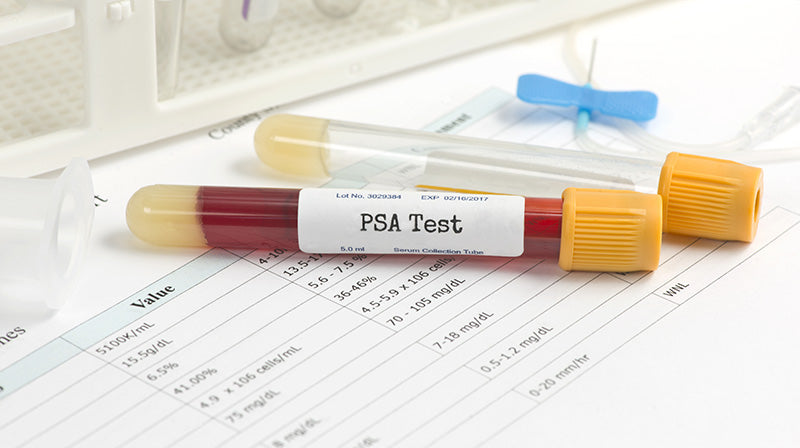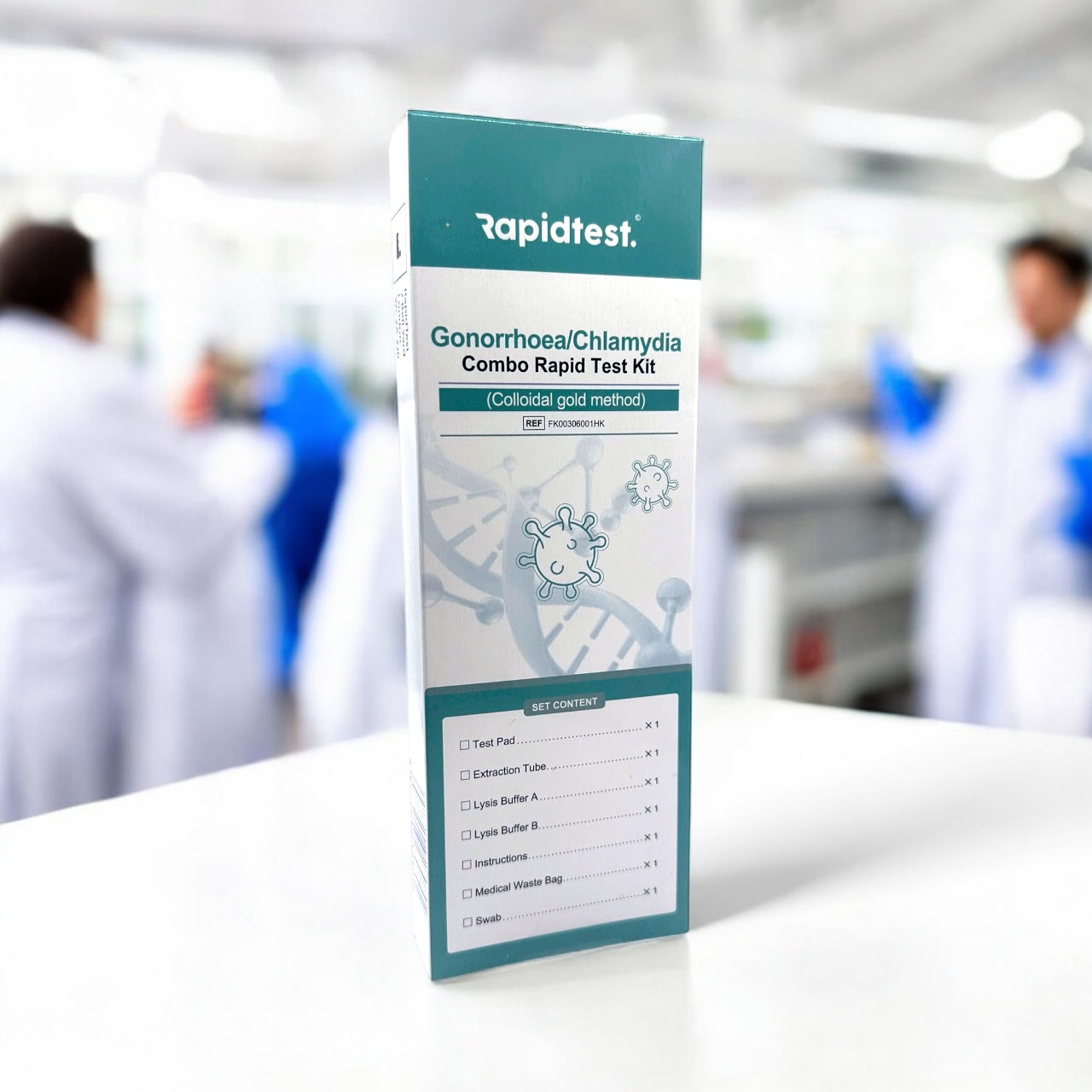
🧪 How to Use a PSA Rapid Test at Home (Step-by-Step Guide)
Share
🧠 Overview
Taking a PSA Rapid Test at home is a fast, accurate, and discreet way to check your prostate health. In just 15 minutes, you can measure your Prostate-Specific Antigen (PSA) level — a key marker that can indicate prostate inflammation, enlargement, or, in rare cases, cancer.
You don’t need to visit a clinic or wait for a lab report. With a CE-certified test and a few simple steps, you’ll get peace of mind from home.
This guide walks you through exactly how to perform your PSA test, understand the results, and know what to do next.
🧰 What You’ll Need
Your RapidTest.co PSA kit includes everything required for testing:
✅ Test cassette
✅ Buffer solution
✅ Lancet (for finger-prick)
✅ Dropper
✅ Alcohol wipe
✅ Instruction leaflet
Before you begin:
- Wash your hands thoroughly with warm water.
- Choose a clean, flat surface with good lighting.
-
Avoid testing immediately after ejaculation, vigorous exercise, or a long cycle ride (these can temporarily raise PSA).
🧪 Step-by-Step: How to Use the PSA Rapid Test
Step 1 — Prepare the PSA Rapid Test Kit You Have Bought
Open the foil pouch and lay out all components. Ensure you have the cassette, buffer, lancet, and dropper ready.
Step 2 — Collect Your Sample
Use the alcohol wipe to clean your fingertip.
Twist and press the lancet to obtain a small drop of blood.
Step 3 — Apply the Sample
Using the dropper, collect the drop of blood and place it into the sample well (marked “S” on the cassette).
Step 4 — Add the Buffer Solution
Add 2–3 drops of buffer solution into the same well.
Step 5 — Wait for 15 Minutes
Place the cassette on a flat surface and set a timer. Do not move it during this period.
Step 6 — Read the Result
After 15 minutes, check your test window:
|
Result |
Meaning |
|
One line at “C” |
Normal PSA level |
|
Two lines at “C” and “T” |
Elevated PSA level — follow up with your GP |
|
No line or only “T” |
Invalid result — repeat test |
🕒 Reading too early or too late may affect accuracy. Always read between 15–20 minutes after adding the buffer.
📊 Interpreting Your Results
The PSA Rapid Test measures whether your PSA level is above or below 4 ng/mL, which is the general upper limit of the normal range.
If your test shows elevated PSA, it doesn’t automatically mean prostate cancer.
Several benign conditions — such as infection, inflammation, or recent physical activity — can temporarily increase PSA.
You should:
1️⃣ Record the date and result.
2️⃣ Repeat the test in a few weeks to confirm the trend.
3️⃣ If the result remains high, contact your GP for a follow-up clinical blood test.
⚙️ Tips for Reliable Testing
To ensure accurate results:
- Avoid ejaculation or strenuous exercise 48 hours before testing.
- Don’t test if you currently have a urinary infection or fever.
- Test at roughly the same time of day for consistency.
-
Keep the kit at room temperature (15–30°C).
For best long-term monitoring, take your PSA test at regular intervals — ideally once a year, or every 6–12 months if you’re at higher risk.
→ How Often Should You Take a PSA Test
🩺 Why At-Home Testing Works
The RapidTest.co PSA Rapid Test uses the same immunoassay technology found in clinical laboratories. It’s CE-marked, ISO-certified, and independently validated for accuracy above 96% when used correctly.
Regular testing from home helps you:
- Spot early changes in PSA before symptoms occur
- Reduce anxiety between doctor check-ups
-
Take an active role in your long-term health
💬 FAQs
Q1. How long does the PSA test take?
Around 15 minutes from sample collection to result.
Q2. Is the PSA test painful?
The lancet produces only a tiny finger prick — mild and momentary.
Q3. How soon after sex or exercise can I test?
Wait at least 48 hours after ejaculation or strenuous exercise to ensure accuracy.
Q4. Can I reuse the kit?
No — each test is single-use and individually calibrated for accuracy.
Q5. How accurate are at-home PSA tests?
RapidTest.co’s PSA kits are CE-marked and ISO-certified with over 96% sensitivity and specificity.

